Disease Impact

Can exercise reverse heart disease ?
Heart disease is a major cause of death worldwide, and it can be devastating to those affected. While there are many treatments available for heart disease, including medication and surgery, some people wonder if exercise can reverse the damage caused by heart disease. There is evidence that regular exercise can help prevent and manage heart disease by improving cardiovascular health, managing weight, lowering blood pressure, improving cholesterol levels, and reducing stress. However, there is no conclusive evidence that exercise can completely reverse heart disease. Despite this, there are still many benefits to regular exercise for heart health. If you have been diagnosed with heart disease or are at high risk for developing it, talk to your doctor about starting an exercise program. They can help you create an exercise plan that is safe and effective for your individual needs and goals.

How does climate change influence the distribution and survival of disease-carrying organisms ?
This text discusses the influence of climate change on the distribution and survival of disease-carrying organisms, highlighting how altered habitats, changes in reproduction and life cycle, and altered behavior and transmission rates contribute to the spread of diseases. It further provides examples of specific disease-carrying organisms affected by climate change and suggests mitigation strategies such as surveillance, control measures, public health education, and research to address these challenges.

How do vaccines work to protect against disease ?
Vaccines protect against disease by introducing a small amount of the pathogen into the body, triggering the immune system to produce antibodies that protect against future infections with the same pathogen. There are several types of vaccines with unique mechanisms of action and effectiveness against specific pathogens. The development of vaccines is a complex process requiring extensive testing and research, but they have been shown to be highly effective at preventing serious diseases.

How does consistent physical activity affect the immune system in relation to chronic disease prevention ?
The article discusses the impact of consistent physical activity on the immune system and its role in preventing chronic diseases. It explains that regular exercise can increase the number and activity of immune cells, reduce inflammation, and improve overall health. The article also provides recommendations for exercise and emphasizes the importance of incorporating physical activity into one's lifestyle to prevent chronic diseases and improve well-being.

What are some good gluten-free food options for people with celiac disease ?
Celiac disease is an autoimmune disorder that damages the small intestine and requires a strict gluten-free diet. Good gluten-free food options for people with celiac disease include fruits and vegetables, meat and fish, gluten-free grains and starches like quinoa and brown rice, dairy products, nuts and seeds, gluten-free flours and baking mixes, and gluten-free snacks and beverages like popcorn and juices.

How does predictive analytics help in disease prevention and management within the healthcare system ?
Predictive analytics in healthcare can significantly improve disease prevention and management by identifying patterns and trends in patient data. It offers benefits such as early intervention, personalized treatment plans, enhanced operational efficiency, and informed decision-making. Applications include disease surveillance, chronic disease management, and patient care optimization. However, challenges like data privacy, quality, and the need for skilled data analysts must be addressed to fully realize its potential.

Does high-intensity interval training (HIIT) have specific benefits for chronic disease prevention ?
High-intensity interval training (HIIT) offers numerous benefits for chronic disease prevention, including improved cardiovascular health, enhanced glucose control, reduced inflammation, increased muscle mass and strength, and improved mental health outcomes. To incorporate HIIT into a healthy lifestyle, start slowly, choose the right exercises, include other forms of exercise, and consult with a health professional.
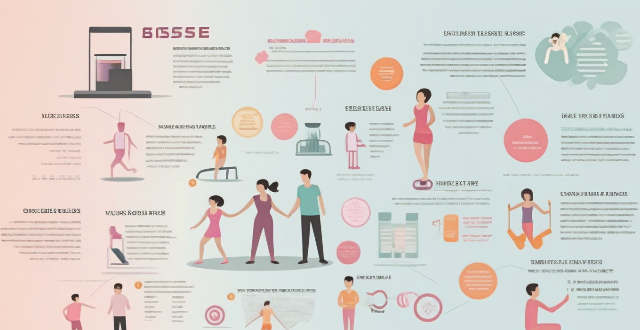
How much exercise is needed per week to prevent chronic disease ?
Chronic diseases are a major cause of death and disability worldwide. Regular physical activity can help reduce the risk of developing chronic diseases such as heart disease, diabetes, and some types of cancer. According to the World Health Organization (WHO), adults should aim to do at least 150 minutes of moderate-intensity aerobic exercise or 75 minutes of vigorous-intensity aerobic exercise each week, along with muscle-strengthening activities at least twice a week. However, the amount of exercise needed to prevent chronic diseases may vary depending on individual factors such as age, sex, body weight, and overall health status. It's recommended that people try to incorporate at least 30 minutes of moderate-intensity aerobic exercise into their daily routine, along with strength training exercises whenever possible.
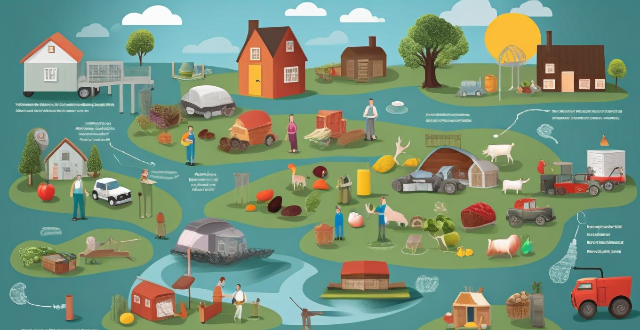
What impact do climate predictions have on agriculture and food security ?
Climate predictions significantly impact agriculture and food security by enabling informed decision-making among farmers. These decisions cover aspects such as crop planning, pest and disease management, water conservation, livestock care, and adaptation to market dynamics. By considering predicted weather patterns, temperature changes, and precipitation levels, farmers can optimize crop yields, reduce losses due to pests and diseases, conserve water resources, ensure proper nutrition for livestock, and adapt to changing market conditions. This results in sustainable agricultural practices that contribute to global food security.
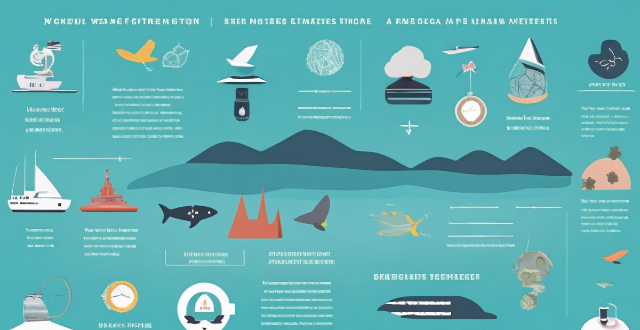
What are the potential impacts of climate change on different sectors ?
Climate change affects various sectors differently. In agriculture, changes in crop yields, shifts in planting seasons, increased pest and disease pressure, and water scarcity may occur. Health issues include heat-related illnesses, spread of diseases, air quality problems, and mental health concerns. Economic impacts involve job losses, infrastructure damage, supply chain disruptions, and investment risks. Environmental effects encompass loss of biodiversity, ocean acidification, deforestation, and sea level rise. It is crucial for all stakeholders to take measures to mitigate these impacts and adapt to the changing climate.
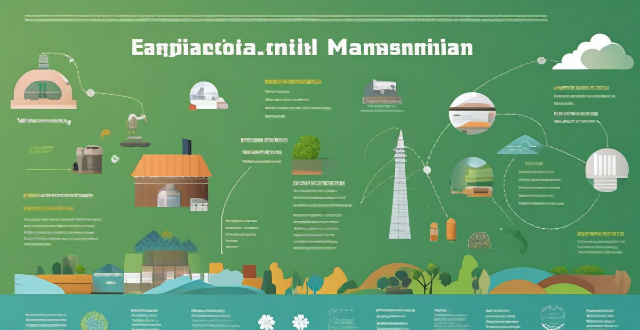
How does climate adaptation impact agricultural practices ?
Climate adaptation is crucial for maintaining agricultural productivity and sustainability amidst shifting environmental conditions. It impacts agricultural practices in several ways, including changes in planting schedules, use of drought-resistant crops, water management techniques, soil health management, livestock management, pest and disease management, diversification of crops and income streams, adoption of smart technologies, and policy and infrastructure support. By embracing these changes, farmers can continue to produce food while minimizing the environmental impact of their operations and building resilience against future climate challenges.
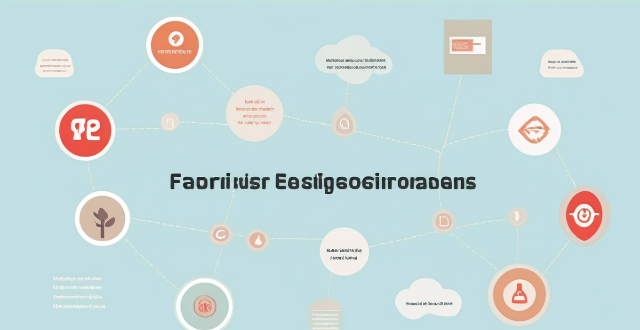
Can using a health management app reduce the risk of chronic diseases such as diabetes or heart disease ?
Health management apps can help reduce the risk of chronic diseases by monitoring health metrics, providing insights, promoting healthy habits, and issuing reminders. However, over-reliance, inaccuracies, and privacy concerns are downsides to consider. While beneficial, these apps should not replace professional medical advice.

How does climate variability impact agriculture and food security ?
Climate variability significantly impacts agriculture and food security by affecting crop yields, livestock production, and the availability and accessibility of food. Direct impacts include changes in temperature, precipitation, extreme weather events, and CO₂ levels, while indirect impacts involve pest and disease outbreaks, water resource availability, soil quality, ecosystem services, market prices and trade, food accessibility and nutrition, and farmer livelihoods. Mitigation and adaptation strategies such as crop diversification, improved water management, breeding resilient crops, sustainable soil management, early warning systems, insurance and safety nets, policy support, and international cooperation are essential for building a climate-resilient food system.

Can physical activity reduce the risk of heart disease ?
Regular physical activity can significantly reduce the risk of heart disease by improving blood circulation, strengthening heart muscles, and reducing major risk factors such as high blood pressure, high cholesterol, and diabetes. Recommended types of exercise include aerobic activities and strength training. Following guidelines from health organizations like the WHO can help maintain cardiovascular health.
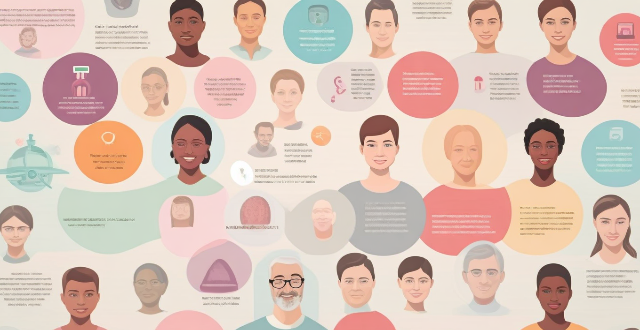
What are the key challenges facing global health security today ?
Global health security faces several key challenges, including emerging infectious diseases, antimicrobial resistance, weak health systems, political instability and conflict, and social determinants of health. These challenges threaten the well-being of people worldwide and require collective efforts to prevent, detect, and respond to infectious diseases that threaten human health.
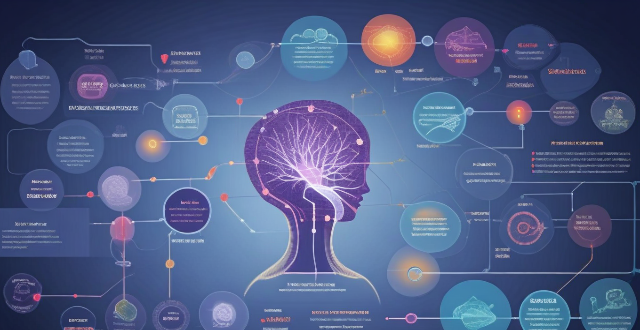
What are the potential health risks associated with global warming ?
Global warming, caused by human activities, poses various health risks including heat-related illnesses like heatstroke and dehydration, spread of diseases such as malaria and Lyme disease, respiratory problems including asthma and allergies, and mental health issues like anxiety, depression, and PTSD. It is crucial to take measures to mitigate these effects and safeguard public health.

How does adequate sleep play a role in women's health ?
Adequate sleep is vital for women's health, affecting immunity, hormone balance, weight management, mental well-being, cardiovascular health, skin condition, chronic disease prevention, and overall quality of life. Prioritizing sleep can lead to fewer sick days, better reproductive health, reduced stress, improved mood and cognitive function, lower risk of heart disease and stroke, delayed aging signs, and a higher quality of life.

Can eating organic food prevent diseases ?
Eating organic food may offer some potential benefits for disease prevention, such as reduced exposure to pesticides and chemicals, higher antioxidant levels, and better nutrient content. However, the overall evidence supporting its ability to prevent diseases is limited, and other factors influencing disease risk should also be considered when making dietary choices. It is important to prioritize a balanced and varied diet rich in fruits, vegetables, whole grains, lean proteins, and healthy fats while minimizing intake of processed foods and sugary beverages.
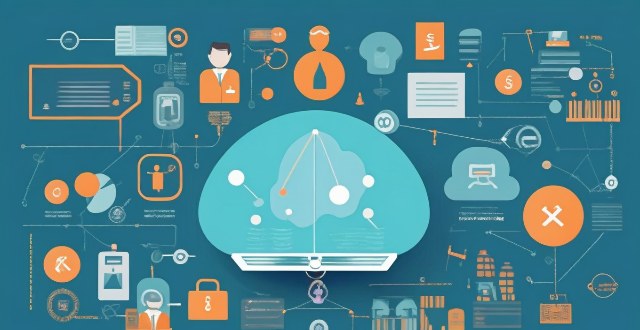
How does celebrity endorsement impact consumer behavior ?
Celebrity endorsement is a common marketing strategy where a well-known individual promotes a product or service. The impact of celebrity endorsement on consumer behavior is significant and can be analyzed from various perspectives, including influence on brand awareness, perception of quality and value, trust and credibility, emotional connection and loyalty, and potential negative impact. Marketers should carefully consider the selection of celebrities for endorsements and monitor the effectiveness of these strategies over time.
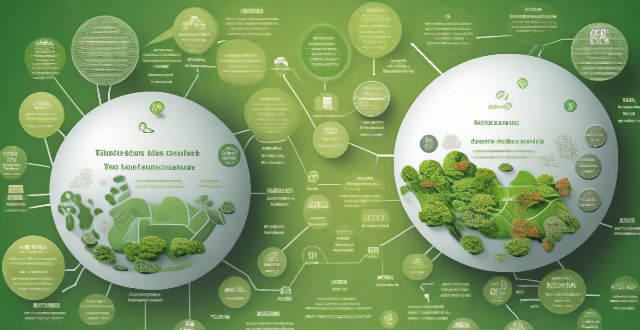
What are the economic impacts of climate loss and damage ?
The article discusses the economic impacts of climate loss and damage, including direct impacts on agriculture, coastal communities, and health, as well as indirect impacts on the energy sector, insurance and financial services, and the labor market. It highlights the need for a comprehensive approach to address these challenges.

How does climate change influence childhood diseases and nutrition ?
This article discusses the impact of climate change on childhood diseases and nutrition, highlighting increased risks of infectious diseases, respiratory issues, heat-related illnesses, waterborne diseases, food insecurity, nutrient depletion, access to nutritious foods, and dietary diversity. It emphasizes the need for a multifaceted approach that includes mitigating greenhouse gas emissions and adapting to changing environmental conditions while ensuring equitable access to healthcare and nutritious food for all children.

How is global warming impacting biodiversity and endangered species ?
Global warming is impacting biodiversity and endangered species through habitat loss, changes in weather patterns, and increased disease outbreaks. Habitat loss occurs as species are forced to migrate due to rising temperatures, leading to competition for resources and loss of habitats. Changes in weather patterns cause extreme events like droughts, floods, and storms, disrupting ecosystems and potentially leading to species extinction. Additionally, global warming contributes to the spread of diseases among wildlife populations, posing a threat to endangered species. It is crucial to take action to mitigate the effects of global warming and protect vulnerable populations.

How does extreme weather impact mental health ?
This comprehensive analysis discusses the impact of extreme weather events on mental health, highlighting immediate emotional responses, trauma, stress, long-term effects like PTSD and depression, community impact, and intervention strategies. It emphasizes the need for early intervention, community support, accessible resources, and resilience building to address these challenges effectively.
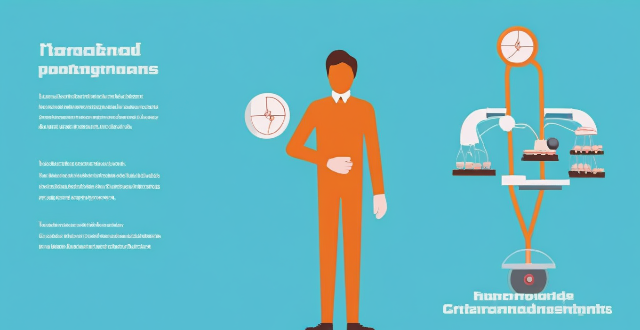
How do climate change and environmental factors impact virus origin tracing ?
Climate change and environmental factors play a significant role in virus origin tracing by affecting host and vector distribution, human activities, and interactions with the environment. Understanding these impacts is crucial for effective surveillance and research efforts to prevent and control infectious diseases.